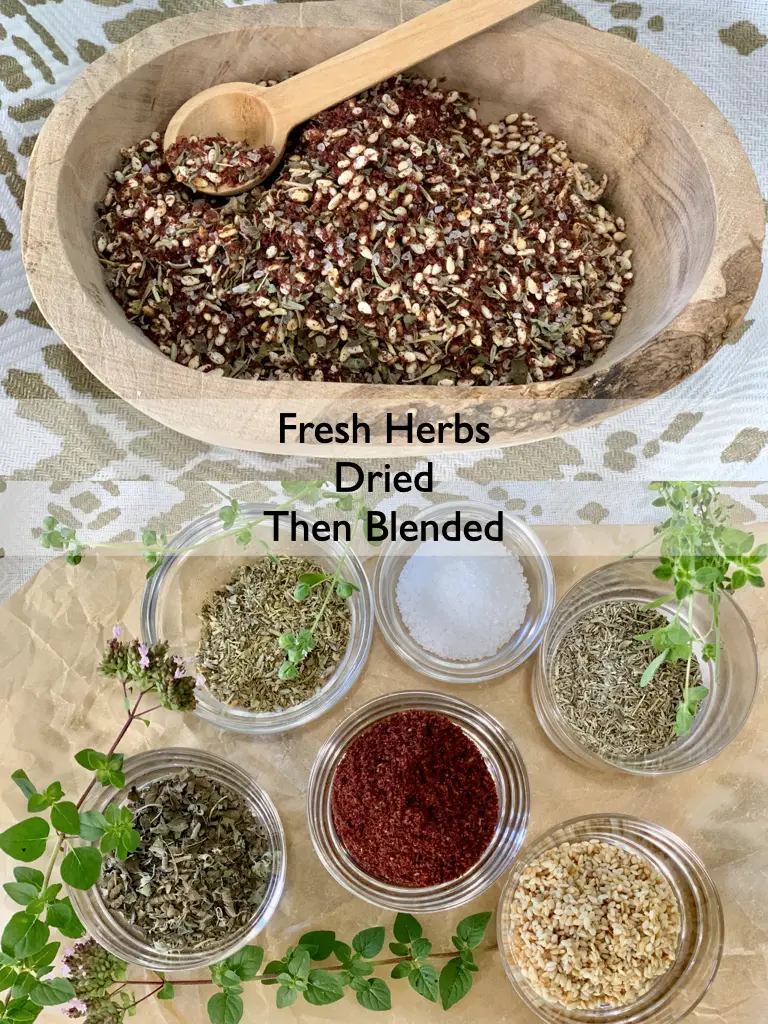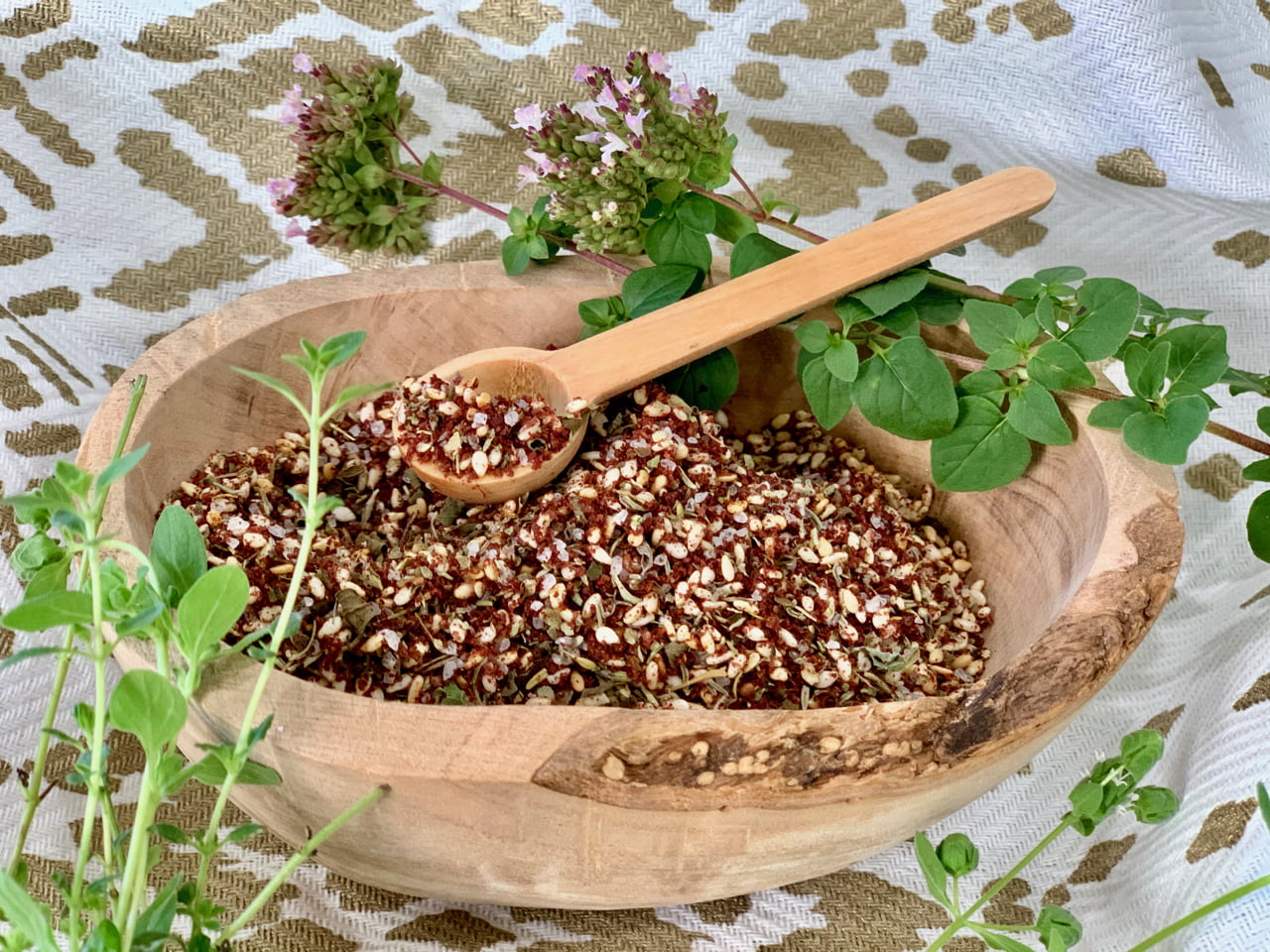The best homemade Za’atar spice blend recipe is simply garden fresh dried herbs, toasted sesame and coriander seeds, and brightened by sumac.
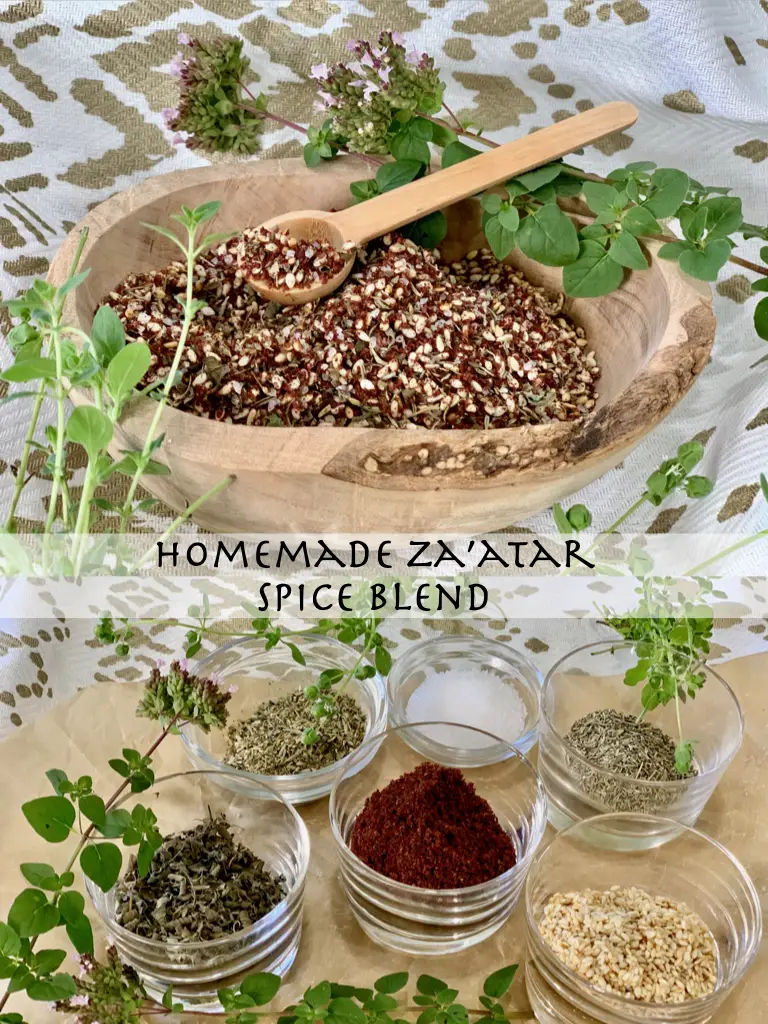
What Is Za’atar?
Za’atar is one of those spice blends with a unique flavor, originating in Palestine, though quickly embraced throughout the Middle East.
It’s not one spice, but rather a well selected group of spices that when combined, take on an entirely new character.
Most definitely a diverse blend of bold flavors derived from herbs, seeds and spices most commonly used in Middle Eastern cooking.
My Syrian mom, however, said it is a spice mix with Biblical roots.
Typically, za’atar is a combination of dried marjoram, thyme and oregano (the woody and floral herbs), with toasted sesame and coriander seeds (for a hint of nuttiness and bright flavor) and my most favorite, sumac (a citrusy tangy flavor).
Other flavors can be brought to the mix as well, toasted cumin seeds, Aleppo chili or dried dill.
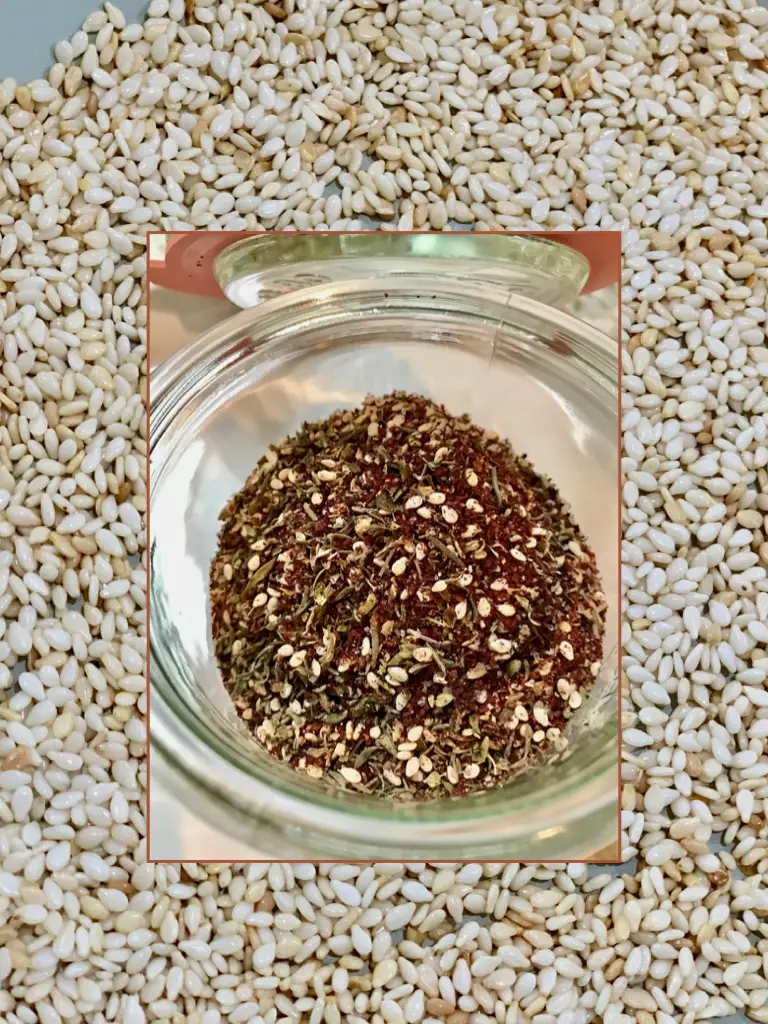
How To Best Describe The Flavor Of Za’atar
This popular Middle Eastern za’atar recipe has a blend of toasted nutty spices from coriander and sesame seeds, which alone, start a warm, almost nutty foundation to build this spice blend on.
Next is that tangy zing from the lemony flavor of sumac, a small dark red berry, very citrus in flavor and certainly adds a beautiful rich color to food.
And NO, sumac spice is not to be confused with the poisonous sumac leaf in the poison ivy and poison oak family, whew!
Herbal notes, in za’atar, I find best taken from the fresh herbs we might grow in our summer garden, winter greenhouse, or windowsill pots, and then dried.
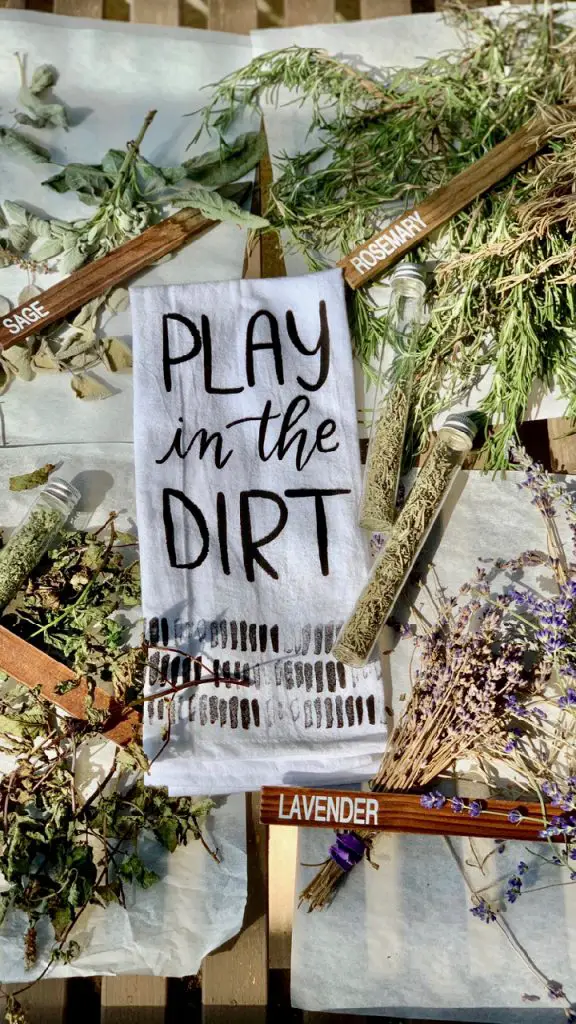
If you’ve ever dried your own fresh herbs, looked at the rich color they retain if used within 6-months after picking and drying them, and then look at dried herbs in the grocery store… well, can we say they long since lost their color and flavor!
The versatile spice mixture of za’atar seasoning, is perfect for a variety of favorite recipes.
Why Make Your Own Za’atar?
Sure, you can buy a za’atar blend from most Middle Eastern grocery stores, but I have several reasons why making small batches at home are best.
Believe it or not, ounce for ounce, it is actually less expensive to mix your own blended spices than it is to buy them already mixed.
Mixing your own gives you the ability to dry some of the fresh herbs from your own home grown summertime herbs, and dry them for winter cooking.
When making your own za’atar blends, you know exactly how fresh the herbs you’ve dried, rather than years old herbs in your spice blend.
Homemade, is also a wonderful way to tweak the flavors to your liking.
Sumac – A Favorite Middle Eastern Spice
As mentioned above, sumac is a red berry with subtle citrus undertones. Once the berries have been dried, they are crushed into a powder and the spectacular spice we will use in za’atar spice blend.
It’s fruity, slightly sour, almost citrusy flavor is not to be matched by any other flavor I know of.
This spice is easy to order online, derived from a Middle Eastern market that is happy to have your business, especially since it is not easily grown throughout much of America.
Toasting Your Own Seeds
The seeds are where the oil is and the oil is where the problem can lie.
Oil goes rancid after a period of time, something that is easily detected by a distinct smell.
Even our lipstick and body lotions, which are made of oils, after a period of time go rancid and take on a very disagreeable smell.
The last thing I want to do is ruin a beautiful spice blend with with this step not carefully considered.
Purchasing good quality raw seeds and lightly toasting them yourself allows you to smell the seeds from the time of purchase and then control just how nutty you want them to taste, based on the time of toasting.
The best way to store seeds, when you purchase them, is in the refrigerator or freezer.
Once toasted they can be stored in an airtight container in a cool place for three months, or in the refrigerator for six months.
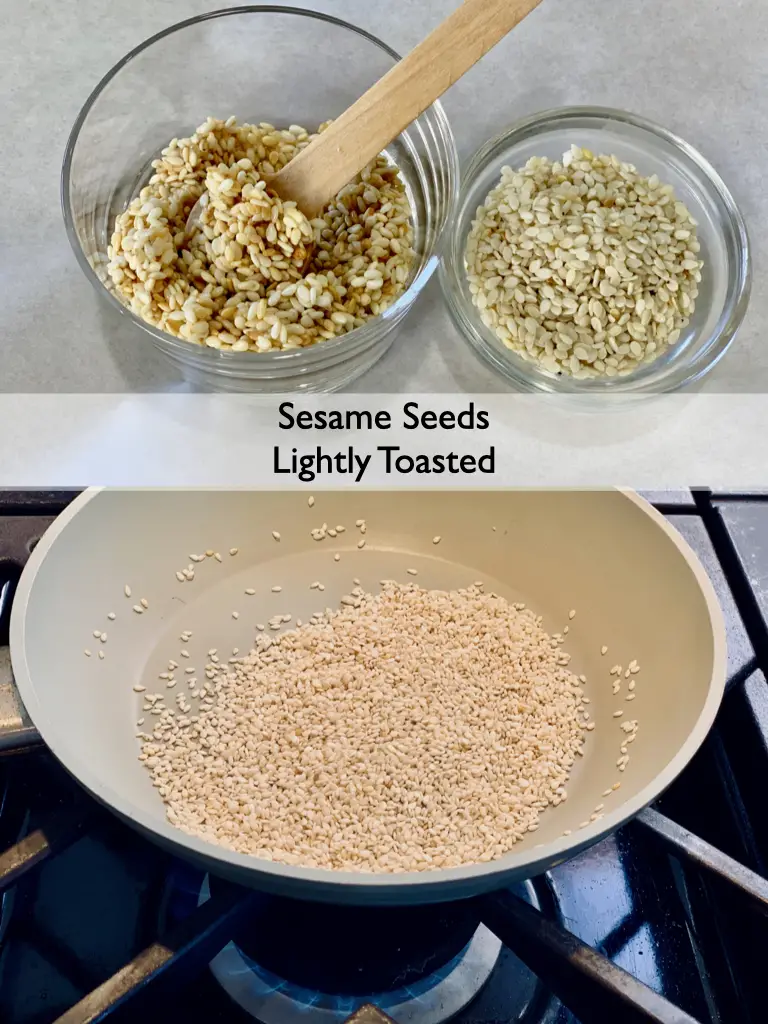
Different Herbs Bring Extra Flavor
Growing up, we never had an herb garden, lots of flowers but never herbs.
My mother always had an extensive pantry of dried herbs, especially when we made a monthly trip into the city to visit Middle Eastern grocers.
Once I grew up and had my own home, I discovered the luxury of having freshly grown herbs for my cooking, even if they were grown in pots along the windowsill.
Now, with kids grown and I’ve got more time to play, I grow several gardens of herbs, and since my home now has a greenhouse, I grown lots during the cold winter months.
What I discovered? Freshly picked and dried herbs bring an extra flavor, a richer flavor, to all my cooking than store bought pale-colored (probably old), dried herbs ever did.
Grow your own, if only a few pots in a window!
Uses For Za’atar In Popular Mediterranean Cooking
The uses for Za’atar spice blend are endless, at least in my kitchen!
- Add to your Hummus.
- Elevate your Baba Ghanoush .
- Brush olive oil across pita bread, sprinkle za’atar and lightly toast this in the oven for a fabulous snack or addition to a tapas table.
- Add it to the dough in homemade bread.
- Sprinkle on salads.
- Season Lamb Ribs, soups or stews.
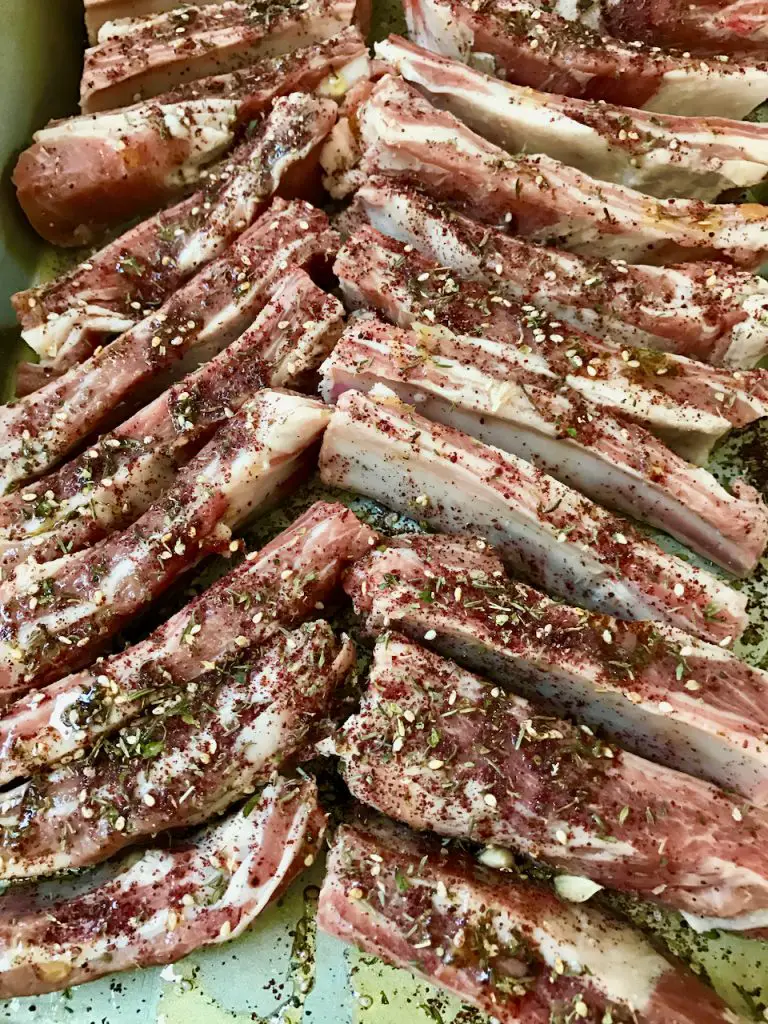
You will need little else to flavor food when cooking with za’atar, though garlic and fresh lemon pairs well with the za’atar spice blend.
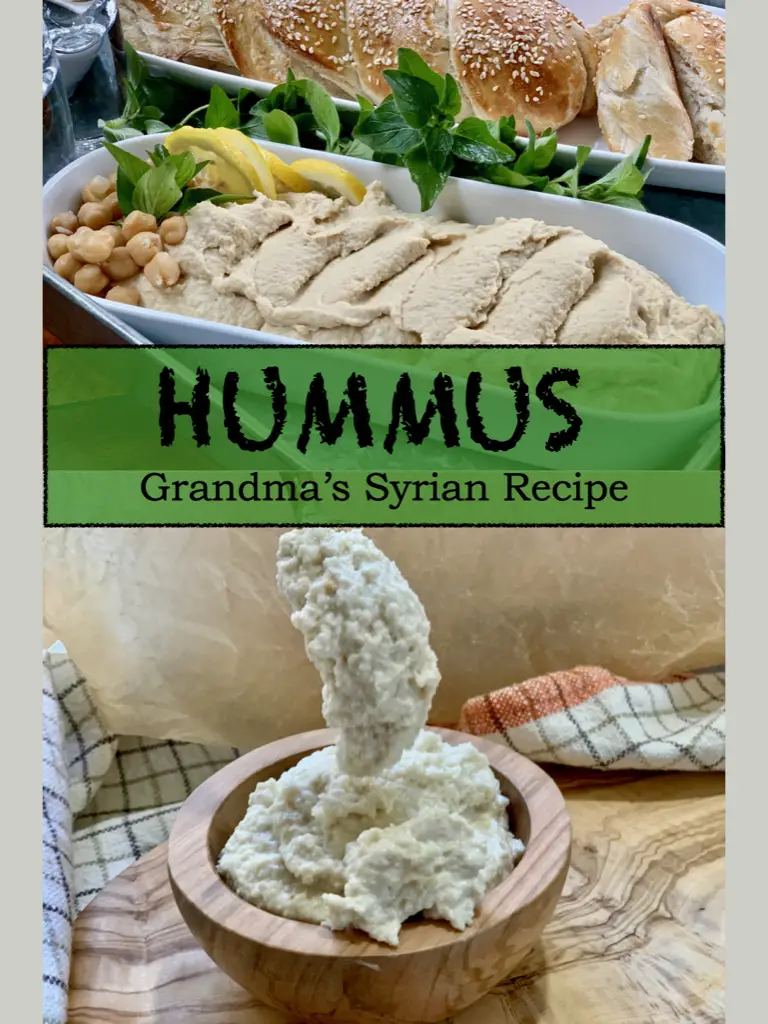
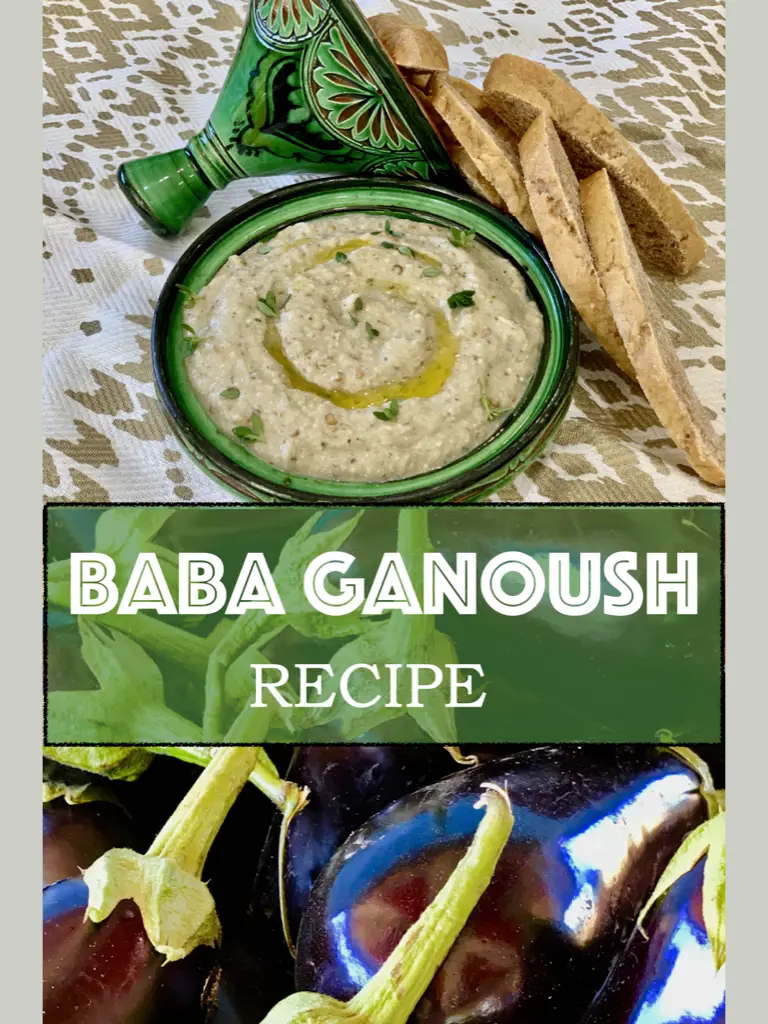
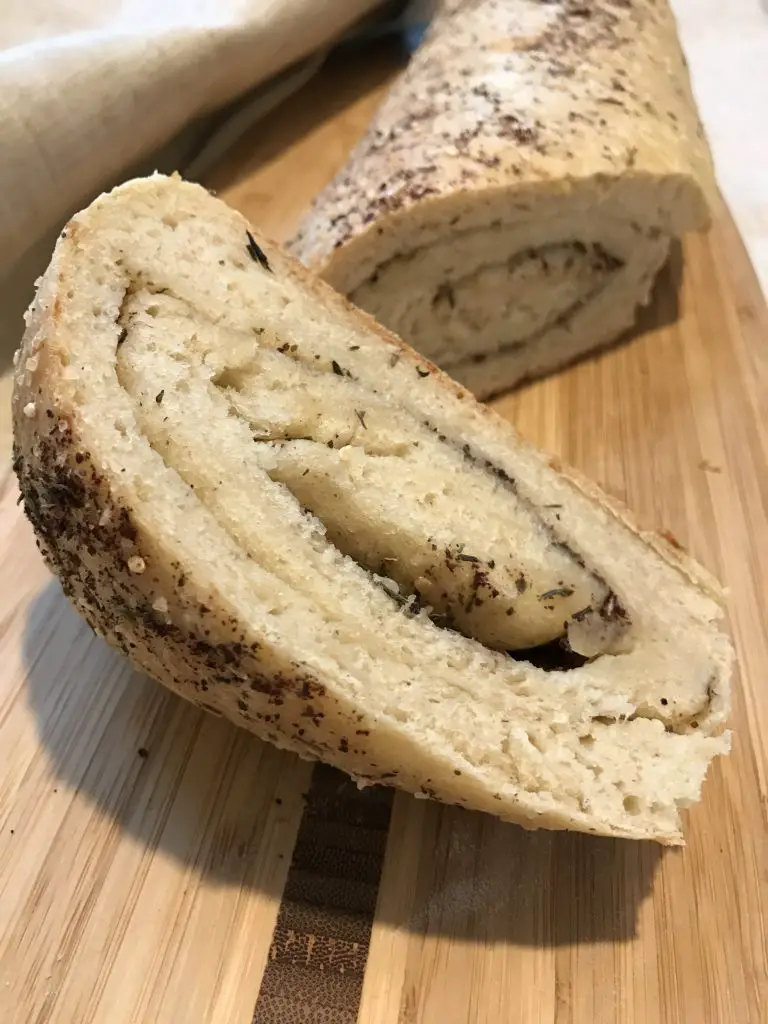
Ingredients Needed
- Sumac
- Thyme
- Oregano
- Marjoram
- Raw sesame seeds
- Coriander seeds
- Sea salt
Equipment Needed
- Mixing bowl
- Wooden spoon
- Small sauté pan
- Airtight container
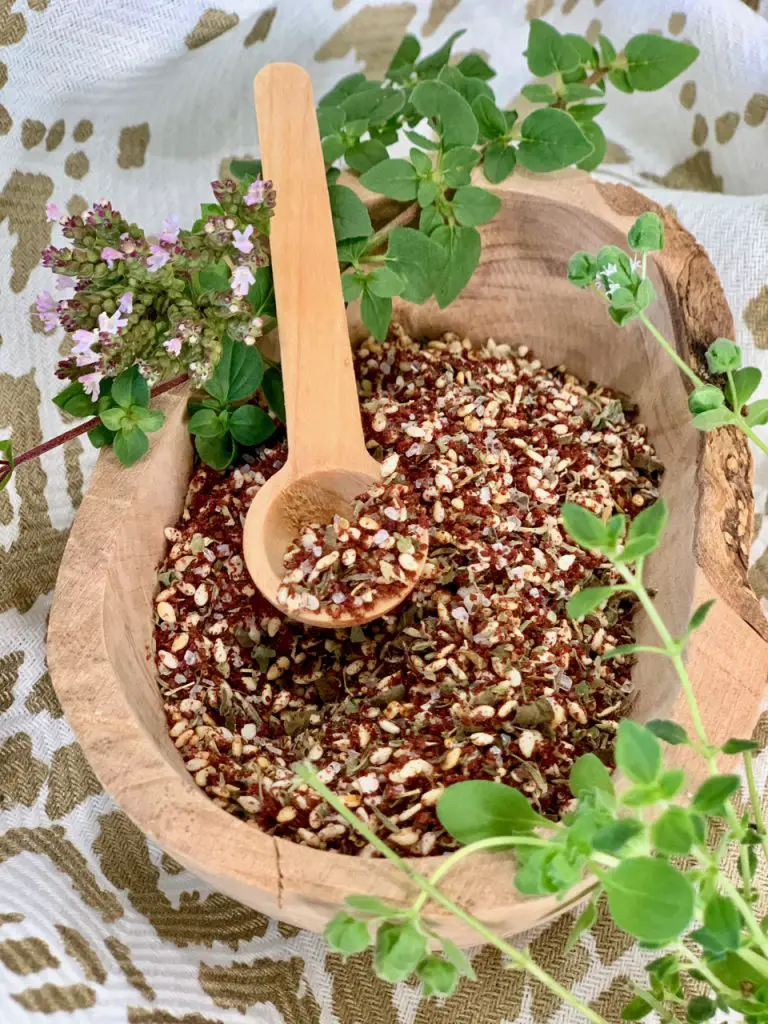
Za’atar Homemade Spice Blend
Equipment
- Small skillet
- spice grinder or mortar and pestle
Ingredients
- 1/2 cup Ground sumac
- 4 tbsp Dried thyme
- 4 tbsp Dried wild oregano or Syrian oregano
- 4 tbsp Dried marjoram
- 2 tbsp Raw sesame seeds lightly toasted
- 1 tbsp Coriander seeds lightly toasted
- 1 tsp Sea salt
- 1/2 tsp Black pepper
Instructions
- Heat a small skillet on top the stove and lightly toast the coriander seeds and sesame seeds until golden brown. Allow them to cool to room temperature.
- Grind them to a powder with a mortar and pestle or spice grinder.
- Measure each ingredient and place in a small bowl. Whisk the ingredients together and store in an airtight container.
Video
Notes
- There are different versions of homemade za’atar, depending on the region of Middle Eastern cuisine being prepared. My recipe is based on my Syrian mother’s blend.
